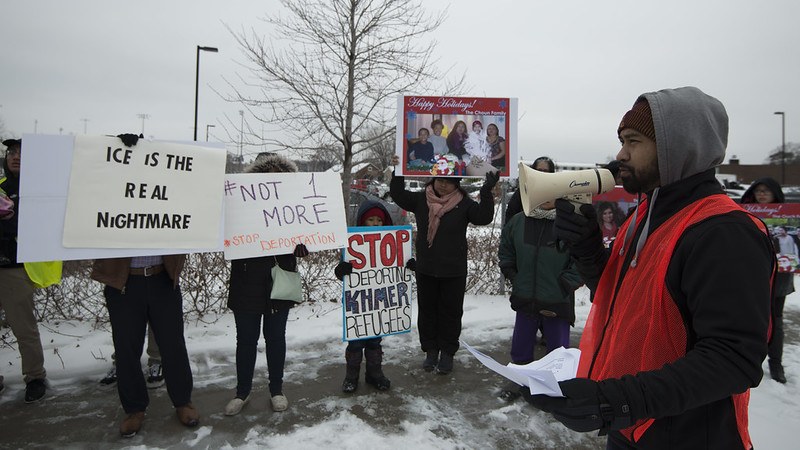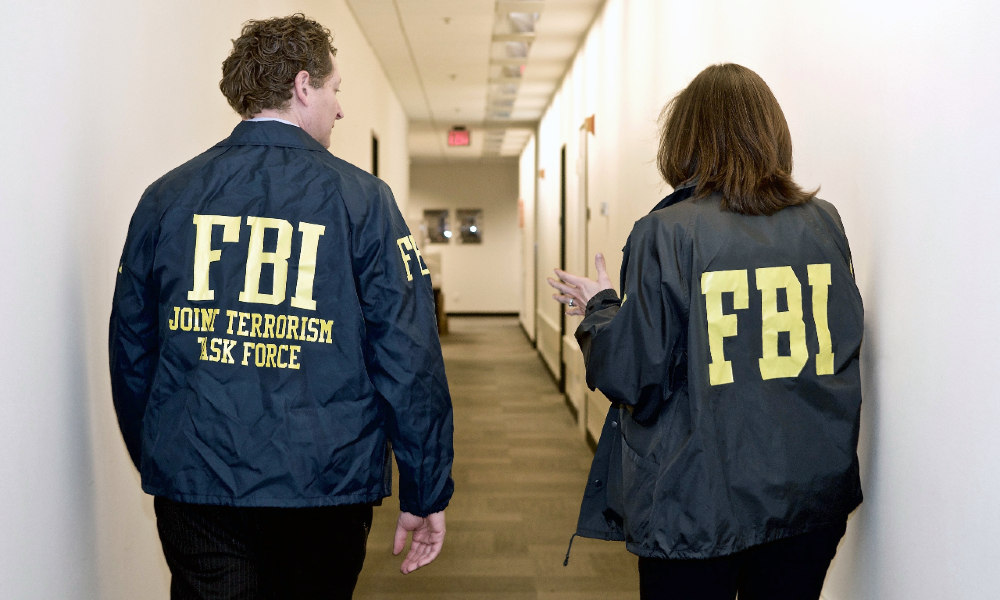The Situation: A Less Effective FBI
.jpg?sfvrsn=d27ec1d0_3)
The Situation on Monday considered Vice President Vance’s response to the lethal targeting of an alleged Venezuelan drug trafficking boat.
Yesterday, a gunman murdered Charlie Kirk in Utah.
I am not going to try to assess the FBI’s performance in apprehending the assassin barely 24 hours after the shooting. Catching a killer can take time—for entirely legitimate reasons. So one shouldn’t take as a condemnation of the bureau that a day has gone by without an arrest.
That said, the past 24 hours have revealed evidence of chaotic leadership at the top of the bureau in an immediate sense that is clearly affecting this investigation. The past few months are also replete with evidence of policy changes that one might expect to have a deleterious impact on a high-profile domestic terrorism investigation like this one.
It’s not too soon to note these policy changes and ask whether they might matter when the FBI suddenly has to find a killer who may have acted with political motivations.
The most striking bit of dysfunction is FBI Director Kash Patel’s unfortunate habit of tweeting about ongoing investigative activity. A few weeks ago, Patel tweeted in real time about the John Bolton search warrant execution—admittedly without mentioning Bolton by name, but in apparent coordination with “a Trump administration official[’s]” disclosure of the raid to the New York Post.
Yesterday, in similar fashion, Patel announced at 6:21 p.m. ET: “The subject for the horrific shooting today that took the life of Charlie Kirk is now in custody. Thank you to the local and state authorities in Utah for your partnership with @fbi. We will provide updates when able.”
The update Patel ultimately provided, at 7:59 p.m., was that, in fact, a suspect was not in custody: “The subject in custody has been released after an interrogation by law enforcement. Our investigation continues and we will continue to release information in interest of transparency.”
Oops.
Waiting until he has accurate information before making an announcement to the public just isn’t Patel’s thing. And that’s fine in a grifter-influencer. But it’s emphatically not fine in an FBI director, who is supposed to have some command of the facts before he declares that “the subject” of the investigation “is now in custody,” and traditionally never gets out ahead of the facts in announcing the status of an investigation. (Note that Patel doesn’t tweet about developments in major cases, in general, just about cases in which the president is known to be interested.)
But this is a new FBI, one in which investigative effectiveness may be less important than the social media engagement of the director and the deputy director, Dan Bongino. Only a few hours before the shooting, three former senior FBI executives sued Patel over their firings, alleging—among other things—that one of them “became alarmed at Bongino's intense focus on increasing online engagement through his social media profiles in an effort to change his followers’ perception of the FBI. [The executive] was concerned that the emphasis Bongino placed on creating content for his social media pages could risk outweighing more deliberate analyses of investigations.”
How prescient.
Speaking of personnel matters, is sacking the head of the relevant office likely to help or hurt a high-stakes investigation that begins several weeks later?
The head of the FBI’s Salt Lake City field office was removed recently—for reasons still a bit unclear, though it is a matter of public record that she was a Pakistani American—though she had been in the job for only a few months.
I have no reason to doubt the capabilities of the current leadership of the relevant field office. But if one wants optimal performance by a field office, decapitating it right before the circumstance in question arises may not be—at least in general terms—the right way to go.
Neither do personnel shortages.
Having reassigned roughly 20 percent of the FBI’s agents to immigration matters will not create personnel shortages in the Kirk investigation—at least not now. Today, this investigation is getting the all-hands-on-deck treatment. If there aren’t enough agents to do a thing, more will get assigned. And this will include, according to the New York Times, Patel and Bongino themselves, who are heading to Utah to “more directly oversee the manhunt.” There is no resource problem now on the Kirk investigation.
But what about yesterday before the shooting?
We used to care about, as the military guys like to put it, “getting to the left of boom”—that is to say, being in a position to preempt terrorist crimes. But over the past few months, the administration has made two very public policy decisions that raise questions about whether we still care about preventing crimes like yesterday’s.
The first is reassigning an enormous number of FBI agents to immigration enforcement. This creates a real manpower issue. The FBI’s resources are not limitless, and the decision to prioritize one thing necessarily involves a decision to deprioritize something else. Since 2001, the FBI’s overwhelming priorities have been terrorism and, more recently, cybersecurity and other areas where the bureau has unique investigative capabilities. The Trump administration’s decision to put a lot of agents on immigration matters means there are many fewer of them available to focus on wayward people with violent tendencies who may be contemplating or plotting political violence of one sort or another.
This policy decision is compounded by another one, which has taken place concurrently: an active deemphasis on domestic terrorism and domestic violent extremism matters. The reason is that domestic violent extremism and terrorism investigations are widely understood to focus on right-wing violence—that being the predominant flavor of political violence currently taking place in the United States.
But if you dismantle the infrastructure that is responsible for dealing with violent extremist groups and investigating individuals who may be plotting something, that also affects your ability to notice people who may be planning to kill the Charlie Kirks of the world. You take agents off certain subjects and neglect or dismiss sources, and you go dark on certain problems.
Is either of these decisions at work here? Were agents pulled off of the kinds of investigations that might have prevented this plot before Kirk was killed—either because they were reassigned to immigration stuff or because we just don’t do domestic violent extremism investigations any more? Or maybe both? I really don’t know and don’t want to pretend to know.
But as analysts commonly say about climate change: One can’t attribute any specific extreme weather event to climate change; one can say that extreme weather events will be more likely and more extreme as a result of it. One should say something similar here. This is exactly the sort of domestic terrorist event I would expect to be more likely as a result of deliberate FBI neglect and focus elsewhere. This is exactly the sort of plot that has a higher likelihood of coming to fruition if the FBI doesn’t prioritize domestic political violence. And it’s exactly the sort of investigation that may proceed less effectively if the bureau deliberately lets its capacity atrophy and puts the director’s social media communications ahead of investigative rigor.
The FBI was a highly professional organization, and I don’t expect that Patel and Bongino’s leadership has destroyed that professionalism entirely in a mere few months. So look for Kirk’s killer to be captured at some point relatively quickly. But professionalism and investigative effectiveness do not operate on an on-off switch, one that gets flipped in a binary fashion. An investigative agency is more effective or it is less effective across a wide spectrum. And with respect to where on the spectrum an agency falls at any given time, priorities matter, staffing matters, and leadership behavior matters.
And if the bureau prioritizes getting information on its leaders’ social media feeds over investigative rigor and accuracy, if it deprioritizes domestic terrorism both relative to other matters and in absolute terms, and if it fires competent people for political reasons, it stands to reason that it will have less investigative success both in preventing and in solving domestic terrorism incidents. These choices also impact potential prosecutorial success, as defense teams try to leverage investigative missteps. And it also leads to overall diminished public trust in anything the bureau has to say.
If we’re not already seeing that today in the Kirk case, we’ll see it in some other case tomorrow—when The Situation will certainly continue.





